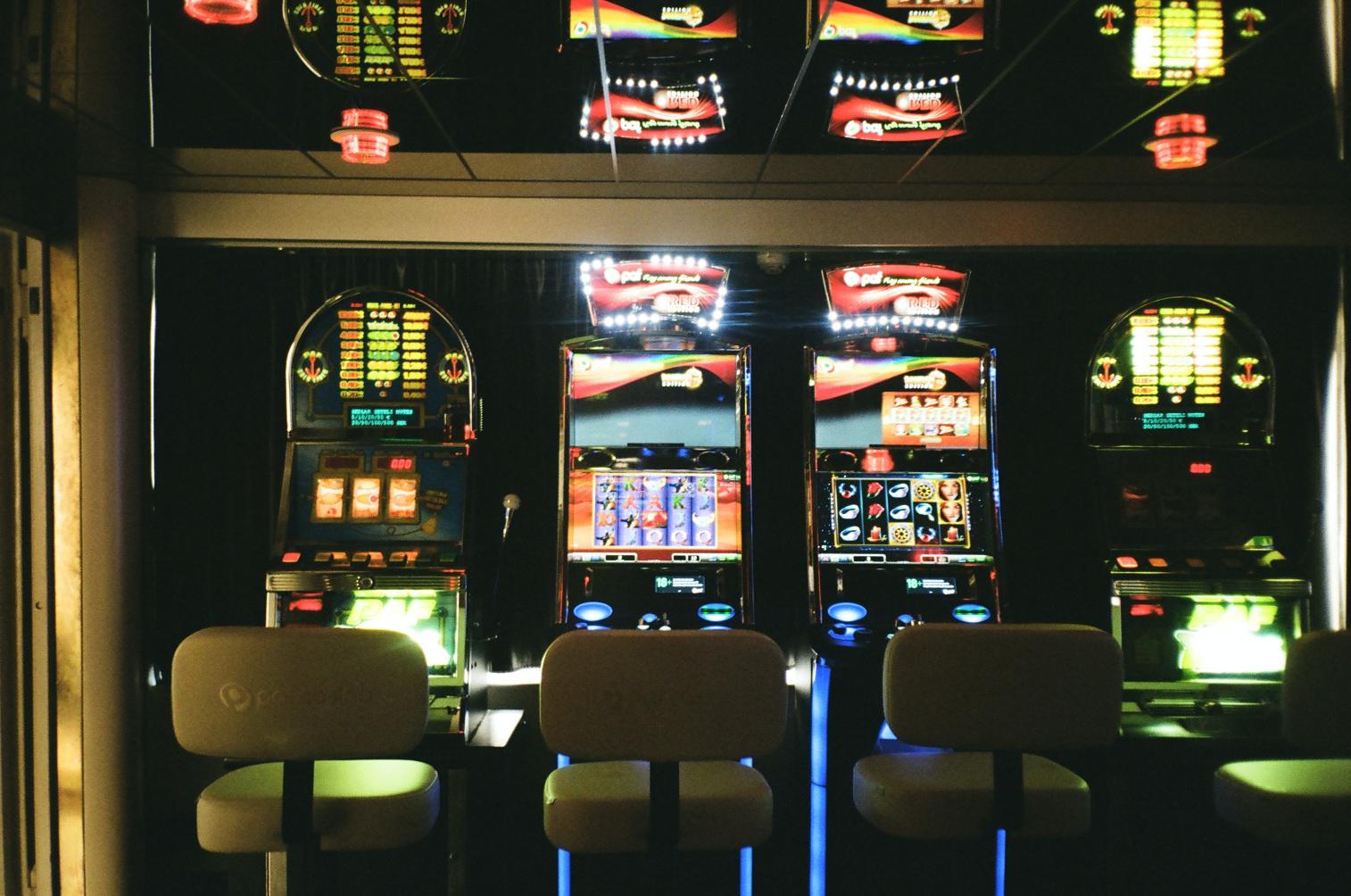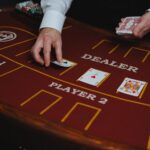
Understanding the psychology behind KOITOTO Toto Macau addiction requires a deep dive into how human brains react to the alluring promises of luck and fortune. This post aims to reveal the intricacies of this fascinating psychological phenomenon and provide an insight into why so many people find it hard to resist.
The Thrill of Anticipation
The Dopamine Surge
Anticipation is a powerful force. When individuals participate in KOITOTO Toto Macau, their brains release dopamine, often referred to as the “feel-good” neurotransmitter. This surge in dopamine creates a thrilling sensation, making the act of gambling exciting and enjoyable. The brain begins to associate KOITOTO Toto Macau with pleasure, driving people to seek out this activity repeatedly.
The Illusion of Control
Many players believe they can influence the outcome of their bets, fostering a false sense of control. In reality, KOITOTO Toto Macau is a game of chance, but the illusion of control reinforces the behavior, encouraging individuals to continue playing. This perceived control over the game heightens the thrill and makes the experience more engaging.
The Role of Cognitive Biases
The Gambler’s Fallacy
Cognitive biases such as the gambler’s fallacy play a crucial role in KOITOTO Toto Macau addiction. The gambler’s fallacy is the belief that if an event has occurred less frequently than expected in the past, it is more likely to happen in the future. This flawed thinking leads players to continue gambling, convinced that their next win is just around the corner.
Confirmation Bias
Confirmation bias is another factor contributing to addiction. Players tend to remember their wins more vividly than their losses, reinforcing the belief that they are more successful than they actually are. This selective memory encourages continued participation, as individuals focus on their perceived successes and downplay their failures.
Social Influences and Peer Pressure
The Desire for Social Acceptance
Humans are inherently social beings, and the desire for social acceptance can drive behaviors, including participation in KOITOTO Toto Macau. Seeing friends and peers engage in gambling can create pressure to join in, leading to addiction. The communal aspect of gambling can make it a shared experience, further enhancing its appeal.
The Impact of Advertising
Advertising plays a significant role in promoting gambling activities. Glitzy ads showcasing winners and the glamorous lifestyle associated with gambling can entice people to try their luck. This exposure normalizes the behavior, making it seem like a common and acceptable activity, potentially leading to addiction.
The Psychological Impact of Losses
Chasing Losses
Losses in KOITOTO Toto Macau can have a profound psychological impact. The desire to recover lost money can lead to “chasing losses,” where individuals continue to gamble with the hope of winning back what they have lost. This behavior often results in even greater losses, perpetuating the cycle of addiction.
Emotional Distress
The emotional distress caused by losses can also contribute to addiction. Feelings of shame, guilt, and frustration can lead individuals to seek solace in further gambling, hoping for a win that will alleviate their negative emotions. This coping mechanism can trap people in a harmful cycle of gambling and emotional turmoil.
The Role of Accessibility
Easy Access to Gambling Platforms
The ease of access to KOITOTO Toto Macau platforms plays a significant role in addiction. The ability to place bets from the comfort of one’s home, combined with the convenience of online gambling, makes it easier for individuals to engage in the activity frequently. This accessibility removes barriers that might otherwise limit participation.
The Impact of Mobile Technology
Mobile technology has further enhanced accessibility, allowing individuals to gamble anytime and anywhere. The constant availability of KOITOTO Toto Macau through smartphones and tablets can lead to impulsive behavior, increasing the risk of addiction. The convenience of mobile gambling can make it difficult for individuals to moderate their participation.
The Influence of Big Wins
The Appeal of Jackpots
Big wins and jackpots are highly enticing, capturing the imagination of many players. The prospect of winning a substantial amount of money can be a powerful motivator, driving individuals to continue playing in the hope of hitting the jackpot. These rare but significant wins can create a strong emotional attachment to KOITOTO Toto Macau.
Reinforcement of Positive Behavior
When individuals experience a big win, it reinforces their behavior. The excitement and pleasure associated with winning create a positive feedback loop, encouraging continued participation. This reinforcement can make it challenging for individuals to stop gambling, as they seek to replicate the feelings of euphoria associated with their big win.
The Need for Escape
Coping Mechanism
For some, KOITOTO Toto Macau serves as an escape from the stresses and challenges of everyday life. Gambling can provide a temporary reprieve from problems, offering a sense of excitement and distraction. This need for escape can drive individuals to engage in gambling frequently, increasing the risk of addiction.
Avoidance of Reality
In addition to providing an escape, KOITOTO Toto Macau can help individuals avoid dealing with real-life issues. The immersive nature of gambling can make it easy to forget about responsibilities and problems, making it an attractive option for those seeking to avoid reality. This avoidance can contribute to the development of addictive behaviors.
The Impact of Financial Incentives
Bonuses and Promotions
Financial incentives, such as bonuses and promotions, can attract individuals to KOITOTO Toto Macau. These offers can make gambling more appealing by providing additional opportunities to win. The prospect of getting something for free can entice people to participate, increasing the risk of addiction.
Loyalty Programs
Loyalty programs that reward frequent players can also contribute to addiction. These programs can create a sense of obligation to continue gambling to earn rewards and benefits. The desire to achieve higher loyalty status can drive individuals to engage in gambling more often, perpetuating addictive behaviors.
The Role of Personality Traits
Risk-Taking Behavior
Individuals with a propensity for risk-taking may be more susceptible to KOITOTO Toto Macau addiction. The thrill of taking risks and the potential for significant rewards can be highly appealing to these individuals. Their natural inclination towards risk can make gambling an attractive and engaging activity.
Impulsivity
Impulsivity is another personality trait linked to gambling addiction. Impulsive individuals may struggle to control their urges and make decisions based on immediate gratification rather than long-term consequences. This impulsivity can lead to frequent and excessive participation in KOITOTO Toto Macau, increasing the risk of addiction.
The Cycle of Addiction
The Reinforcement Loop
The cycle of addiction is often driven by a reinforcement loop. Positive experiences, such as wins and excitement, reinforce the behavior, while negative experiences, such as losses and emotional distress, drive individuals to seek solace in further gambling. This loop can trap individuals in a cycle that is difficult to break.
Breaking the Cycle
Breaking the cycle of addiction requires a combination of awareness, support, and intervention. Recognizing the signs of addiction and seeking help from professionals can be crucial steps in overcoming the problem. Support from friends, family, and support groups can also play a vital role in helping individuals break free from the cycle of addiction.
Conclusion
Understanding the psychology behind KOITOTO Toto Macau addiction is essential for developing effective strategies to address the issue. By recognizing the factors that contribute to addiction, individuals and organizations can take steps to mitigate the risks and provide support to those affected. Whether it’s through education, counseling, or support groups, there are ways to help individuals overcome their addiction and regain control over their lives.






